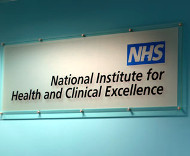Article from: www.thenewspaper.com/news/50/5096.asp
12/2/2016
UK Motoring Group Slams Government-Funded Report As Anti-Car
Alliance of British Drivers says public transport, not private automobiles, is responsible for bad air quality.
 A government-funded UK agency on Thursday called for more speed cameras, lower speed limits and "car free days" to improve the environment. The National Institute for Health and Care Excellence (NICE) insisted in a new report that these measures would improve air quality in England. The Alliance of British Drivers dismissed the claims as the same old rhetoric from the anti-car lobby.
A government-funded UK agency on Thursday called for more speed cameras, lower speed limits and "car free days" to improve the environment. The National Institute for Health and Care Excellence (NICE) insisted in a new report that these measures would improve air quality in England. The Alliance of British Drivers dismissed the claims as the same old rhetoric from the anti-car lobby.
"Time and again we hear campaigners blaming cars for all the world's ills," said ABD spokesman Nigel Humphreys. "Campaigners have a habit of targeting the car by blaming all emissions on cars when in reality, cars are now very clean indeed. ABD research has already shown public transport in the form of buses to be responsible for much of the pollution around towns and cities yet the car still gets the blame."
The 61-page report sets out "guidelines" for local officials and national policymakers designed to increase the number of tickets and taxes assessed against motorists. These include the creation of "no vehicle idling zones," congestion charges and schemes that would only allow cars to come into the city on certain days of the week. Motorists would also find themselves more likely to get speeding tickets with an active effort to lower speed limits down as low as 20 MPH, with a variable signs that ensure the actual limit is always changing. The report insists that such measures will save lives by reducing the risk of weather-related disasters.
"Changing the way we travel can also help reduce emissions of greenhouse gases that contribute to climate change," the NICE report states. "Climate change is linked to increased risk of extreme weather and other events that have an adverse effect on health, such as floods, heatwaves and the spread of some 11 infectious diseases."
The report then admits that the central thesis that driving behavior can have an impact on air quality is based on a handful of dubious studies that fit well with the conclusions NICE researchers had drawn.
"Although in general the evidence was of poor quality, committee members felt that it was consistent with what they would expect from their own experience and so supported the recommendations," the report explained.
NICE has a budget of £70 million (US $88 million), almost all of which comes from governmental sources. Since 2007, all of the profit from speed cameras has been transfered to the national treasury, out of which NICE is funded. In 2014, 668,081 speed camera tickets worth £66,808,100 (US $84,010,517) were issued. The report notes that some recommendations, such as the imposition of a congestion tax, ran the risk of creating the perception that the proposal's primary motive was revenue-raising at the local level.
"Members agreed that it is important to make it clear that charges or fines are not used to generate profits, but rather for other activities to reduce air pollution," the NICE report stated. "However, there was no direct evidence to support this belief. In addition, making a recommendation to restrict the way local government allocates funds was beyond the remit of the guideline."
A copy of the study is available in a 750k PDF file at the source link below.
Source: Air pollution: outdoor air quality and health (UK National Institute for Health and Care Excellence, 12/1/2016)
Permanent Link for this item
Return to Front Page
 A government-funded UK agency on Thursday called for more speed cameras, lower speed limits and "car free days" to improve the environment. The National Institute for Health and Care Excellence (NICE) insisted in a new report that these measures would improve air quality in England. The Alliance of British Drivers dismissed the claims as the same old rhetoric from the anti-car lobby.
A government-funded UK agency on Thursday called for more speed cameras, lower speed limits and "car free days" to improve the environment. The National Institute for Health and Care Excellence (NICE) insisted in a new report that these measures would improve air quality in England. The Alliance of British Drivers dismissed the claims as the same old rhetoric from the anti-car lobby.